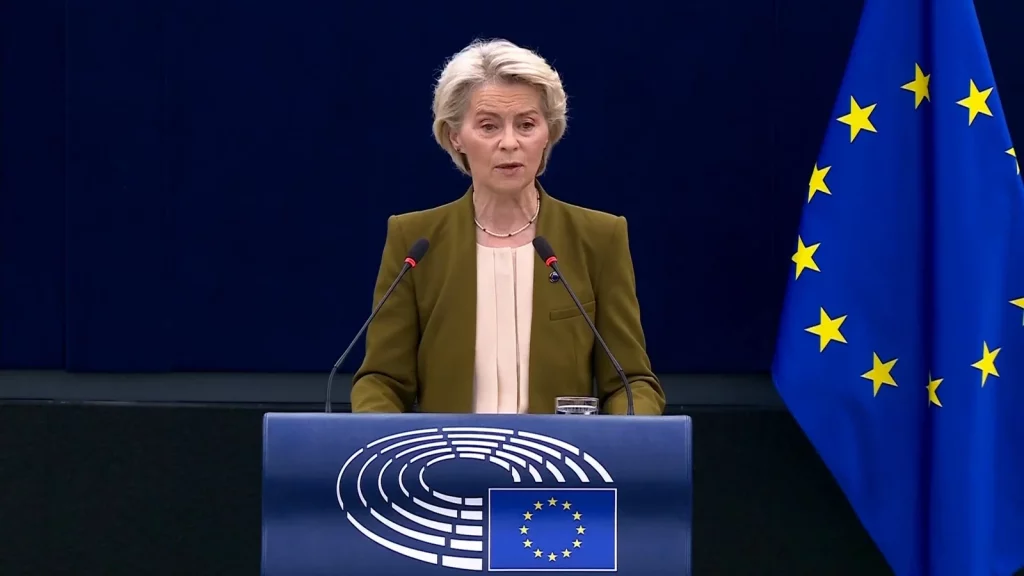EU Commission President to Propose Sanctions and Trade Measures Against Israel

The President of the European Commission announced plans to introduce sanctions on certain extremist Israeli ministers and to suspend elements of a European Union agreement with Israel relating to trade.
The announcement, made during a speech to the European Parliament in Strasbourg, comes amid increasing criticism within the EU regarding Israel’s handling of the conflict in Gaza. The proposals reflect mounting pressure on the European Commission to take a stronger stance.
The measures, however, would require significant support among EU member states—either broad or unanimous—depending on the specific action. Given the divisions within the bloc on Middle East policy, securing agreement is expected to be difficult. Still, the Commission President emphasised that the move is also intended as a political signal.
“What is happening in Gaza has shaken the conscience of the world,” she said in her State of the Union speech, an annual address where she outlines her priorities.
She acknowledged the internal disagreements in the EU over Gaza but stressed the Commission would take action within its remit.
“We will propose sanctions on the extremist ministers and on violent settlers. And we will also propose a partial suspension of the Association Agreement on trade-related matters,” she said.
She did not specify which ministers would be targeted or which trade measures would be affected.
Israel’s Foreign Minister responded by criticising the remarks.
“The President of the Commission errs in yielding to the pressures of elements that seek to undermine Israel–Europe relations,”
he posted on social media platform X. He added that the comments were “regrettable”, and claimed the Commission President is aware of Israel’s efforts to support humanitarian aid and that the suffering in Gaza is caused by Hamas.
The European Union remains Israel’s largest trading partner, with goods trade between the two reaching €42.6 billion (around $49.9 billion) last year. According to a policy paper from July, suspending the trade portion of the EU-Israel Association Agreement would remove preferential access for Israeli goods entering the EU. This move would need support from at least 15 of the 27 EU countries, representing 65% of the population.
Divisions Within the EU
Some EU members—such as Ireland, Spain, Sweden, Denmark, and the Netherlands—have supported suspending the free trade agreement with Israel. Others, including Germany, Hungary, and the Czech Republic, have opposed such actions.
Sanctions on individuals require unanimous approval, and Hungary has previously blocked proposals to sanction violent Israeli settlers.
“I am aware it will be difficult to find majorities. And I know that any action will be too much for one, and too little for others. But we must all take our own responsibility,” the Commission President said.
Spain welcomed the proposals.
“We Europeans cannot have normal relations with Israel when there is a flagrant, systematic, daily violation of human rights in Gaza,” said Spanish Foreign Minister Jose Manuel Albares.
The Commission President also announced a pause in bilateral support for Israel, while continuing work with Israeli civil society and institutions such as Yad Vashem, the Holocaust memorial center. She did not detail the funding that would be affected.
An earlier proposal to limit Israeli access to a major EU research funding program did not gain enough support from member states. Diplomats noted that Germany’s position will likely be decisive, and Berlin has so far remained unconvinced.
Lastly, she announced that the Commission will establish a Palestine Donor Group next month, which will include a mechanism for reconstruction efforts in Gaza.
